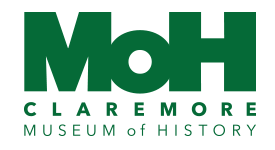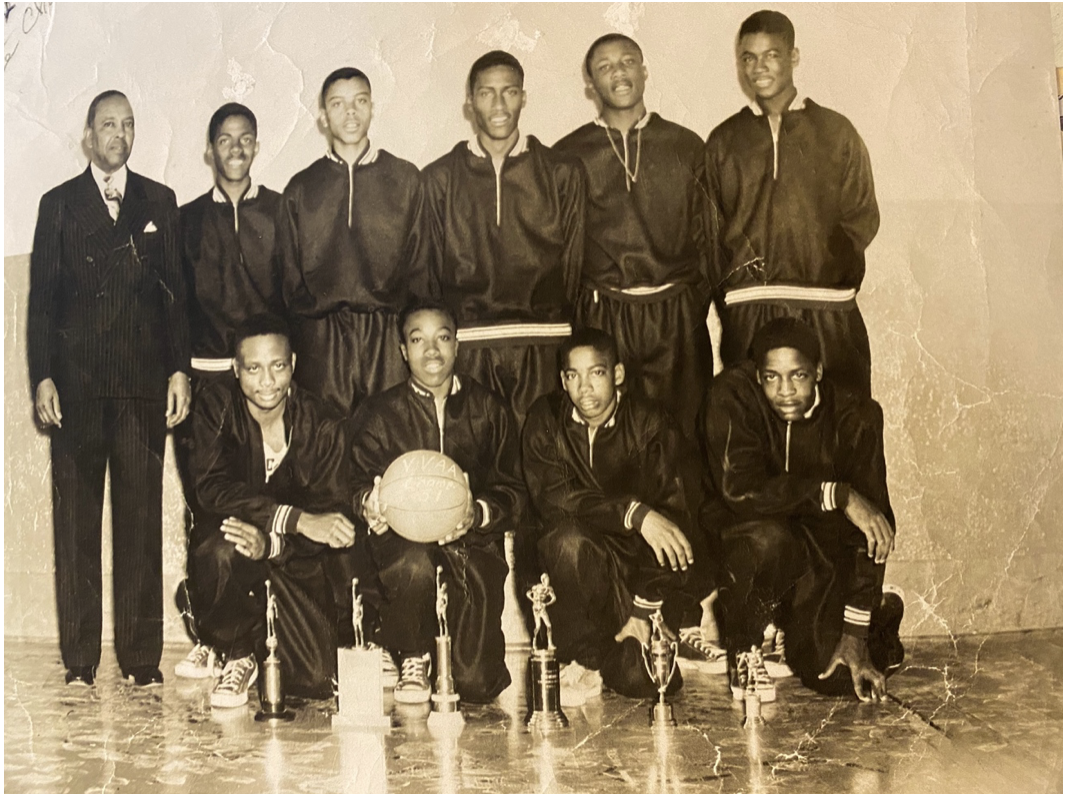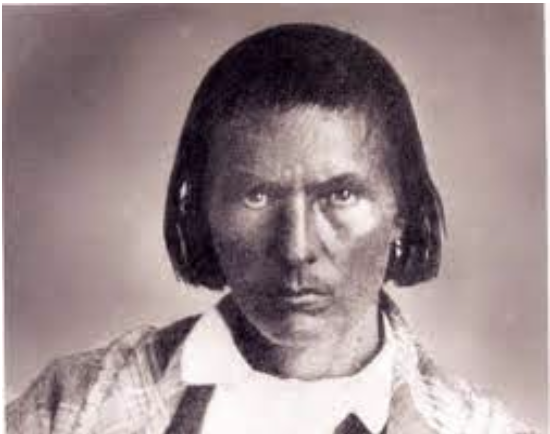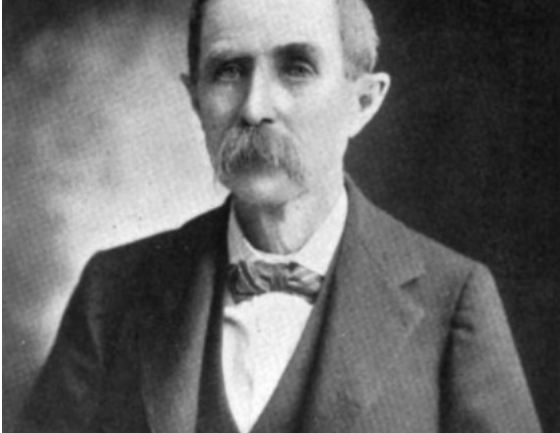Claremore Daily Progress June 8, 2018 Rick Heaton Progress Correspondent
Fourteen years before Texas Western College made history, the Lincoln School boy’s basketball team in Claremore was making history of its own.
Lincoln School, Claremore’s school for the black community before desegregation, put quite a team on the court in the early 1950s.
In 1966, Texas Western had a starting five of all black players. They made history by beating top-ranked University of Kentucky 72-65 for the NCAA Championship. It marked the first time this had happened. And to beat god-like Adolph Rupp, Kentucky’s coach who didn’t recruit or play black players, was something special. The movie “Glory Road” tells that story.
But the story of the Lincoln players isn’t so well known or often told.
Local historian Gerome Riley, a sophomore on the 1952 state championship boys basketball team, remembers those times like it was yesterday.
“This team was a state champion,” he said. “We were one of the first state champions out of Rogers County.”
Only nine players suited up for Lincoln that year, maybe because there weren’t many players, or because they didn’t have a bus, and had to pack the two coach’s cars for road trips. That’s just how it was.
On one road trip, however, they rode in style.
“We didn’t have a bunch of guys. Sometimes we didn’t carry that many men,” Riley said. “We thought we were in hog heaven when we rented a bus and went to Joplin.”
In 1951, the team went to the state tournament, but lost to Cushing in the semifinals. The next year, however, Lincoln beat Cushing for the Class C state title. They lost to Cushing the next year at the state tournament.
“During those three years, our record was 82 wins and 10 losses,” Riley said. “We had quite a bunch of athletes.”
Among those players were Alonzo Rogers, who was the team’s best ball-handler. Ronald Johnson later became the state’s first black highway patrolman. Bryce Vann went on to play ball at Langston University before transferring to finish his college career at Central State in Edmond. He also played with the Kansas City Steers of the American Basketball Association before they merged with the NBA. He also played for the Marques Haynes All-Stars. And Floyd Grimett, grandfather of Noah Grimett, last year’s Lantow Award winner for the Zebras football team. Other team members were Maurice Willis, Martin Coleman, Acklin Floyd, Carl Wynn and Riley.
“I didn’t go anywhere but the Marines,” Riley said.
The team was coached by James Morris, who played a big part in Riley’s early life.
“Mr. Morris was one of the greatest individuals you’d ever run across,” Riley said. “He taught the fundamentals. They don’t do that now. They don’t teach fundamentals anymore. He told us if you learn the fundamentals of the game, the rest will come, which is true. How to pass, how to dribble, how to use the backboard and use english.”
Back in the 1950s, the winner of the state tournament wasn’t through playing. There were three classifications — A, B and C — with the A champion being Booker T. Washington and the B champion Sand Springs. Lincoln beat Sand Springs, but were downed by Booker T. Washington for the right to advance and play in the national tournament.
Though their dreams of playing in the national tournament were dashed, the people of Claremore made sure the team got to at least go and watch the tournament.
“The Lions Club and the citizens of Claremore sponsored us to go see the national tournament in Nashville,” Riley said. “They rented us a station wagon and they gave us expense money.”
But traveling out of the friendly local community, things got interesting for the team. They weren’t treated as well as at home. But that’s just the way it was.
The trip to Tennessee was quite an experience.
“We drove into a service station and they wouldn’t sell us gas or let us use the restroom,” Riley said. “We drove on to Memphis and there was a black pastor and we stayed with him. All the ball players stayed at his house. As we were going to Nashville, some wouldn’t sell us gas. If you couldn’t find a black restaurant, you didn’t get to eat.”
People living in this day and age don’t have to worry about having a place to eat or a place to use the restroom, but it was a different time back then. But the team found a way.
“As we drove through the countryside, they had little country stores,” Riley said. “Back then, they had meat counters with bologna and longhorn cheeses. They’d slice up a big stack of that and get us some pop and we’d sit down there and eat.”
Another road trip to Kansas City for a tri-state event against Northeast Oklahoma and KC Sumner opened Riley’s eyes a bit…kind of like the movie “Hoosiers” playing out in their second game of the trip.
“We beat Northeast Kansas City and went into Sumner,” he said. “Only three fouls were called against them. They weren’t going to have some little old country school beating them.”
The schools became integrated in 1955, according to Riley. The elementary school remained at Lincoln for some time after that before it closed in 1967.
And when Lincoln school meshed into Claremore’s high school, things went better than expected.
“It went fine,” Riley said. “They didn’t have any problems that I know of.”
And about a decade later, Texas Western, now known as the University of Texas-El Paso, pulled their big upset over Kentucky, and like Jackie Robinson before them, started changing minds and hearts.
“It had to start changing people’s minds because until they won that, it still wasn’t as good as it should have been in professional basketball and college ball,” Riley said. “They were all black at Texas Western and after they won that, they got the recognition because they couldn’t hide it anymore. They won the biggest show in college. That’s quite a feat, brother.”




